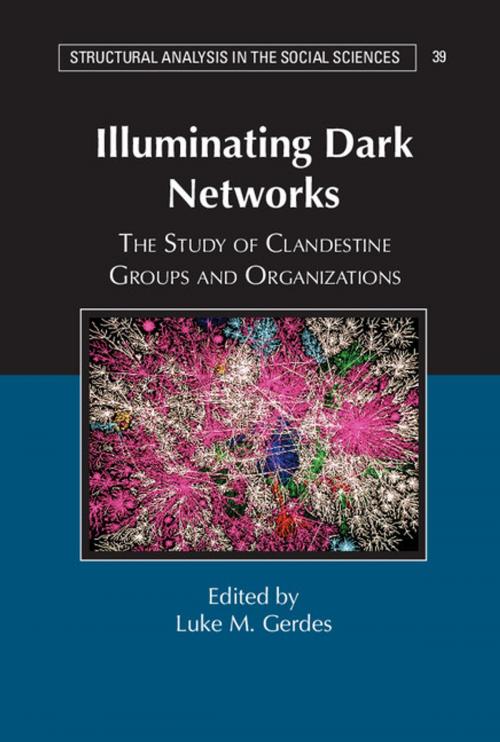Illuminating Dark Networks
The Study of Clandestine Groups and Organizations
Nonfiction, Social & Cultural Studies, Political Science, Social Science, Business & Finance| Author: | ISBN: | 9781316365878 | |
| Publisher: | Cambridge University Press | Publication: | July 23, 2015 |
| Imprint: | Cambridge University Press | Language: | English |
| Author: | |
| ISBN: | 9781316365878 |
| Publisher: | Cambridge University Press |
| Publication: | July 23, 2015 |
| Imprint: | Cambridge University Press |
| Language: | English |
Some of the most important international security threats stem from terror groups, criminal enterprises, and other violent non-state actors (VNSAs). Because these groups are often structured as complex, dark networks, analysts have begun to use network science to study them. However, standard network tools were originally developed to examine companies, friendship groups, and other transparent networks. The inherently clandestine nature of dark networks dictates that conventional analytical tools do not always apply. Data on dark networks is incomplete, inaccurate, and often just difficult to find. Moreover, dark networks are often organized to undertake fundamentally different tasks than transparent networks, so resources and information may follow different paths through these two types of organizations. Given the distinctive characteristics of dark networks, unique tools and methods are needed to understand these structures. Illuminating Dark Networks explores the state of the art in methods to study and understand dark networks.
Some of the most important international security threats stem from terror groups, criminal enterprises, and other violent non-state actors (VNSAs). Because these groups are often structured as complex, dark networks, analysts have begun to use network science to study them. However, standard network tools were originally developed to examine companies, friendship groups, and other transparent networks. The inherently clandestine nature of dark networks dictates that conventional analytical tools do not always apply. Data on dark networks is incomplete, inaccurate, and often just difficult to find. Moreover, dark networks are often organized to undertake fundamentally different tasks than transparent networks, so resources and information may follow different paths through these two types of organizations. Given the distinctive characteristics of dark networks, unique tools and methods are needed to understand these structures. Illuminating Dark Networks explores the state of the art in methods to study and understand dark networks.















